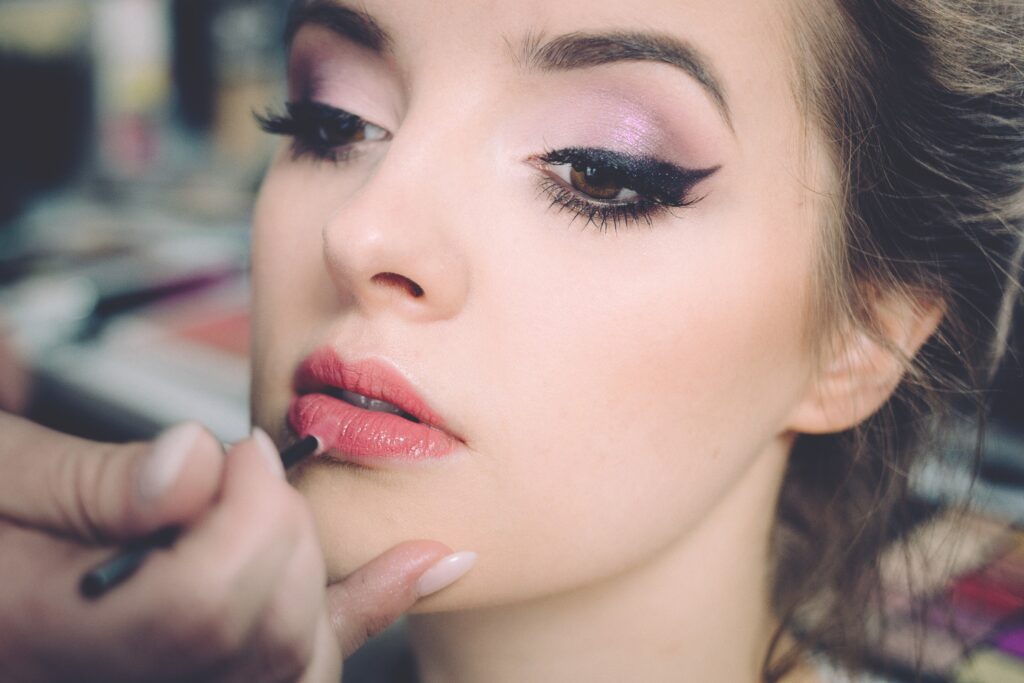Common Mistakes To Avoid When Removing Makeup

Removing makeup at the end of the day is an essential part of any skincare routine. Not only does it prevent clogged pores and breakouts, but it also allows your skin to breathe and regenerate overnight. However, many people make common mistakes when removing makeup that can lead to skin irritation, sensitivity, and even damage. In this blog, we’ll explore some of these mistakes and how to avoid them.
Not using the right product
Using the wrong product to remove your makeup can cause damage to your skin, especially around the delicate eye area. Using soap or face wash may not remove all the makeup, and using harsh chemicals can strip the skin of its natural oils. Instead, choose a gentle, oil-based cleanser or micellar water that effectively removes makeup without causing irritation.
Rubbing too hard
When you’re trying to remove stubborn makeup, it’s easy to get carried away and start scrubbing your face too hard. This can cause redness, irritation, and even micro-tears in the skin. Instead, use a gentle touch and let the product do the work. Pat the cleanser onto your face and use a soft cotton pad or cloth to wipe away the makeup gently.
Forgetting to remove all the makeup
One of the most common mistakes people make when removing makeup is not removing all of it. This can lead to clogged pores, breakouts, and even infections. Pay extra attention to the areas around your eyes and lips, where makeup tends to be more stubborn. Use a Q-tip or cotton bud to remove any residue from these areas.
Not removing makeup before exercising
Exercising with makeup on can lead to clogged pores and breakouts. Before hitting the gym, make sure to remove all your makeup. This will allow your skin to breathe and sweat properly, reducing the chances of irritation and breakouts.
Skipping the double cleanse
Double cleansing is an essential step in any effective makeup removal routine. The first cleanse removes the makeup, while the second cleanse cleanses the skin. Skipping the second cleanse can leave behind residue and bacteria on the skin, leading to breakouts and sensitivity.
Not washing your face afterward
After removing your makeup, it’s essential to wash your face thoroughly with a gentle cleanser. This will remove any residue from the makeup remover and ensure that your skin is clean and fresh.
Using hot water to remove makeup
Hot water can strip the skin of its natural oils, leaving it dry and dehydrated. When removing makeup, it’s best to use lukewarm or cool water. This will help to soothe the skin and prevent any irritation or redness.
Using the same towel to dry your face
Using the same towel to dry your face after removing makeup can transfer bacteria, oil, and dirt back onto the skin. Instead, use a clean, soft towel or pat your face dry with a tissue or paper towel.
Not removing makeup from your neck
Many people forget to remove makeup from their neck, which can cause breakouts and irritation. When removing makeup, make sure to extend the product down to your neck and gently wipe it away.
Using expired products
Expired makeup removers can cause irritation, sensitivity, and even infection. Make sure to check the expiry date on your makeup remover before using it. If it’s expired, throw it away and purchase a new one.
Not removing waterproof makeup properly
Waterproof makeup can be challenging to remove, and many people make the mistake of not removing it properly. Using a gentle, oil-based cleanser specifically designed for waterproof makeup can effectively remove it without causing irritation or damage.
Using too much product
Using too much makeup remover can be wasteful and cause unnecessary irritation. Use a small amount of product and massage it gently onto your skin. You can always add more if needed.
Forgetting to remove eye makeup before washing your face
Eye makeup, especially mascara and eyeliner, can be challenging to remove, and forgetting to remove it before washing your face can cause it to smear and transfer onto your skin. Make sure to remove all eye makeup first before washing your face.
Rubbing your eyes
Rubbing your eyes while removing eye makeup can cause redness, irritation, and even damage to the delicate skin around the eyes. Instead, use a gentle touch and let the product do the work.
Using abrasive materials to remove makeup
Using rough materials, such as a washcloth or loofah, to remove makeup can cause irritation and damage to the skin. Use a soft cotton pad or cloth to remove your makeup gently.
In summary, avoiding these common mistakes when removing makeup can help keep your skin healthy, radiant, and free from irritation. Remember to be gentle, use the right products, and always double cleanse and wash your face afterward to ensure that your skin stays clean and fresh


